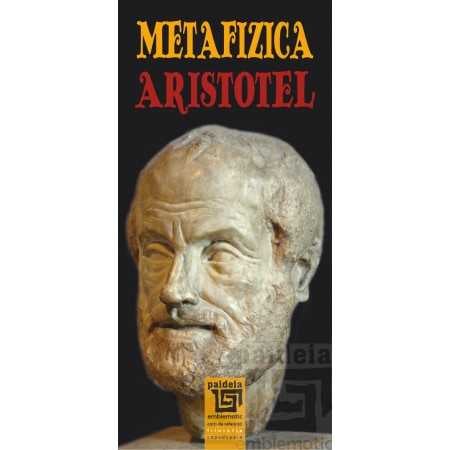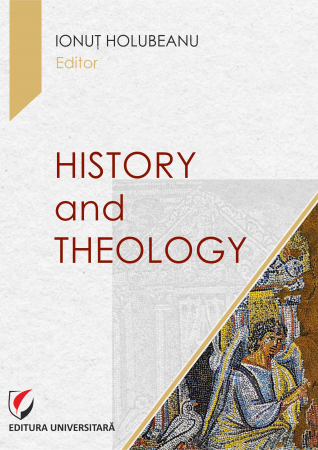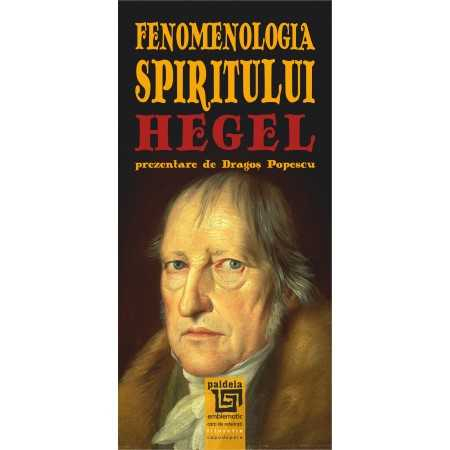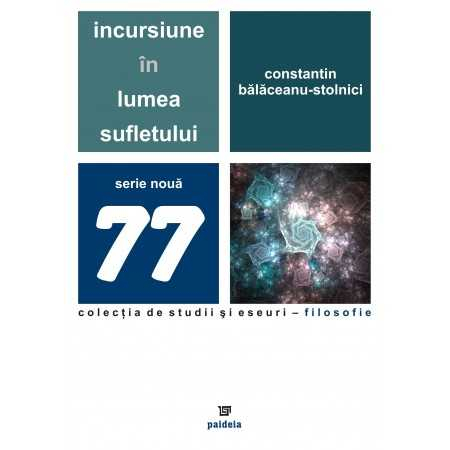ISBN: 978-606-28-0161-8
DOI: 10.5682/9786062801618
Publisher year: 2015
Edition: I
Pages: 244
Publisher: Editura Universitară
Author: Ieremia Rusu
- Description
- Download (1)
- Authors
- Content
- More details
- Reviews (0)
The book The Biblical Basics of Christian Dogmatics according to the Gospel by Dr. Ieremia Rusu highlights the doctrinal heritage proclaimed by the Christian Churches according to the Gospel in Romania. It is a valuable contribution to the enrichment of local evangelical dogmatic literature. The author, Dr. Ieremia Rusu, holder of the Doctoral Diploma in Theology, from the University of Bucharest, joins with this paper among authors who seek, with full competence, to systematically expose the principles of faith of the Christian Churches according to the Gospel of Romania. As the title of the paper shows, the biblical character of the doctrines of the Christian Churches according to the Gospel according to the specific interpretation of the Scriptures is fully highlighted. Following the system of Systematic Theology, the author presents the teaching of the Holy Scriptures as the foundation of the doctrinal system. After which the doctrines of the Christian Churches according to the Gospel regarding each chapter of Systematic Theology are presented, including the chapter on Eschatology. The work highlights, according to the specific, evangelical creed, a true theological guide for the true Christian creed and experience towards the edification of the faith and the experience of each Christian towards the Glory of God.
Prof. Univ. Dr. Vasile TALPOS
Professor Emeritus at the University of Bucharest and at the Baptist Theological Institute of Bucharest,
PhD supervisor in Theology at the University of Bucharest
The book The Biblical Basics of Christian Dogmatics according to the Gospel by Dr. Ieremia Rusu is the first volume in this field that was written by a theologian from the Romanian Brothers Movement. The author aims to answer the question "How biblical is Christian dogma according to the Gospel?" The answer to this question is presented in the form of a proposal of dogmatic theology, which is based on Holy Scripture, but also related to the studies of other evangelical theologians. From an academic perspective, the book enriches the Romanian spirituality of the Christian Churches according to the Gospel, but also of the evangelical movement as a whole. The author's contribution is important, enriching the dialogue between the different evangelical denominations with the contribution brought by the theology of the Brotherhood Movement.
Prof. Univ. Dr. Otniel-Ioan BUNACIU
Dean, Faculty of Baptist Theology, University of Bucharest
The book The Biblical Basics of Christian Dogmatics according to the Gospeladdresses a relevant topic and less explored in the evangelical theological literature in Romania. The paper presents the current doctrines of Christians according to the Gospel, without studying their development over time. The treatment of such a subject from an academic point of view responds to a real need within the Christian Churches according to the Gospel in Romania. The author presents the current doctrines of Christians according to the Gospel, understood from the perspective of evangelical theology and nuanced by the doctrinal specifics of the "Brotherhood Movement" in Europe.
Conf. Univ. Dr. Daniel MARIS
Rector, Baptist Theological Institute of Bucharest
The book The Biblical Basics of Christian Dogmatics according to the Gospelby Dr. Ieremia Rusu is a work in the field of dogmatic theology that studies a topic not addressed in evangelical theology in Romania or in the Brotherhood Movement in the world. Based on Holy Scripture and supplemented with the studies of other evangelical theologians, the book seeks to answer the question "How biblical is Christian dogma according to the Gospel?" The answer to this question is presented in the classical form of a Confession of Faith, but with the complexity of a book of dogmatic theology. From the academic point of view, the work is a complex theological study, but also easy for the reader eager to know the basic doctrines of Christians according to the Gospel. I recommend Dr. Ieremia Rusu's book The Biblical Basics of Christian Dogmatics According to the Gospel to all students and professors of theology, elders and pastors eager to enrich their theological knowledge in the field of dogmatic theology, but also to all Christians according to the gospel.
Lecturer. Univ. Dr. Elisei RUSU
Vice-rector, Christian Theological Institute for the Gospel "Timotheus" in Bucharest
-
The Biblical Foundations of Christian Dogmatics according to the Gospel
Download
IEREMIA RUSU graduated from the Faculty of Electronics and Telecommunications at the Bucharest Polytechnic Institute and obtained the title of Master of Arts in Biblical Studies at the Moody Bible Institute in Chicago, USA.
In 2010 he obtained the title of Doctor of Theology at the University of Bucharest.
He is a university teacher, general director of the Christian Theological Institute after the Gospel "Timotheus" in Bucharest and presbyter - pastor of the Christian Church after the Gospel "Agape" in Ploiesti.
List of abbreviations / 11
Foreword / 13
INTRODUCTION / 15
BIBLIOLOGY: BIBLE DOCTRINE / 19
1.1. Revelation / 20
1.1.1. Definition of revelation / 20
1.1.2. Why is it rational to have divine revelation? / 21
1.1.3. Classification of revelation / 21
1.2. Inspiration / 28
1.2.1. Definition of inspiration / 28
1.2.2. Explaining inspiration / 29
1.2.3. Plenary and verbal inspiration / 31
1.2.4. Inherence of the Bible / 33
1.2.5. Proof that the Bible is the Word of God / 35
1.3. Canon / 37
1.3.1. The concept of canon / 37
1.3.2. Preliminary observations / 38
1.3.3. Old Testament Canon / 38
1.3.4. New Testament Canon / 41
1.4. Enlightenment of the Holy Spirit / 45
THEOLOGY: THE DOCTRINE OF GOD / 49
2.1. The nature of God / 49
2.1.1. Who is God / 49
2.1.2. The existence of God / 50
2.1.3. The essence of God's name: Sovereignty / 53
2.1.4. God is Spirit / 55
2.1.5. God has personality / 56
2.1.6. God is Alive / 58
2.2. The Trinity of God / 58
2.2.1. The importance of the doctrine of the Trinity / 58
2.2.2. Definition of the Trinity / 59
2.2.3. The biblical basis of the doctrine of the Trinity / 60
2.2.4. The theological basis of the doctrine of the Trinity / 61
2.2.5. Historical heresies / 62
2.3. God's perfections / 63
2.3.1. God is Eternal / 64
2.3.2. God is Infinite / 65
2.3.3. God is completely Free - Satisfied / 66
2.3.4. God is Immutable or Immutable / 67
2.3.5. God is Almighty or Almighty / 68
2.3.6. God is Omnipresent or Almighty / 69
2.3.7. God is Omniscient or Omniscient / 70
2.3.8. God is Immanent / 70
2.3.9. God is Transcendent / 71
2.3.10. God is Love / 72
2.3.11. God is Jealous / 73
2.3.12. God is Holy / 73
2.3.13. God is Good / 75
2.3.14. God is Merciful or Merciful / 76
2.4. The works of God / 76
2.4.1. God's plan / 76
2.4.2. Definition of God's plan / 77
2.4.3. Implications of God's plan / 78
2.4.4. Logical priority: God's plan or man's action? / 79
2.4.5. Why is there evil in the world? / 79
2.4.6. God created the universe / 80
2.4.7. God sustains the universe / 81
2.4.8. God's providence / 82
2.4.9. God saves / 82
CHRISTOLOGY: THE DOCTRINE OF JESUS CHRIST / 83
3.1. The divinity of the Lord Jesus Christ / 83
3.1.1. Christ claimed to be God / 83
3.1.2. The divinity of Christ attested by His work / 85
3.1.3. Pre-existence of the Son of God / 86
3.1.4. The New Testament teaches the divinity of Christ / 86
3.1.5. Evidence of the divinity of Christ in the Old Testament / 88
3.1.6. The resurrection proves the divinity of Christ / 88
3.2. The humanity of the Lord Jesus Christ / 89
3.2.1. The Incarnation of the Eternal Logos / 89
3.2.2. Christ had a human body, soul and spirit / 90
3.2.3. Christ has grown / 91
3.2.4. Christ was called man / 91
3.2.5. Christ had the limitations of human nature / 92
3.2.6. Christ experienced human emotions / 92
3.3. The Unity of the Person of the Lord Jesus Christ / 93
3.3.1. Historical heresies regarding the divinity and humanity of the Lord Jesus Christ / 93
3.3.2. The Humility of the Lord Jesus Christ: The Kenotic Problem / 95
3.3.3. The biblical perspective on the union of the two natures of the Lord Jesus Christ / 97
3.3.4. The impeccability of the Lord Jesus Christ / 99
3.4. The work of the Lord Jesus Christ / 100
3.4.1. The work of the Lord Jesus Christ before the incarnation / 100
3.4.2. The work of the Lord Jesus Christ on earth / 101
3.4.3. The present work of the Lord Jesus Christ / 101
3.4.4. The future work of the Lord Jesus Christ / 102
PNEUMATOLOGY: THE DOCTRINE OF THE HOLY SPIRIT / 103
4.1. Person of the Holy Spirit / 103
4.1.1. The Holy Spirit is a Person / 104
4.1.2. The Holy Spirit is God / 105
4.2. The work of the Holy Spirit / 105
4.2.1. The Work of the Holy Spirit in the Old Testament / 106
4.2.2. The work of the Holy Spirit in the life of Christ / 106
4.2.3. The work of the Holy Spirit in the salvation of man / 107
4.2.4. The work of the Holy Spirit in the life of the Christian / 116
4.2.5. The work of the Holy Spirit in the Church / 118
ANGELOLOGY: DOCTRINE OF ANGELS / 125
5.1. Doctrine about the holy angels / 125
5.1.1. The origin of the angels / 125
5.1.2. The nature of angels / 126
5.1.3. The organization of the angels / 128
5.1.4. The work of the angels / 130
5.2. Doctrine about demons / 131
5.2.1. The Origin of Satan and the Demons / 131
5.2.2. The activities of Satan and the demons / 132
5.2.3. The destiny of Satan and the demons / 134
ANTHROPOLOGY: THE DOCTRINE OF HUMAN / 135
6.1. The origin of man / 135
6.2. The image of God in man / 137
6.2.1. Terms used for "face" and "likeness" / 138
6.2.2. Theories regarding imago Dei / 138
6.2.3. Conclusions on imago Dei / 140
6.3. Human nature / 141
6.3.1. The dichotomy / 141
6.3.2. Trichotomism / 142
6.3.3. Monism / 143
6.3.4. Conditional unit / 143
6.3.5. Conclusions on human nature / 144
6.4. Transmission of the human being / 145
HAMARTIOLOGY: THE DOCTRINE OF SIN / 147
7.1. The origin of sin / 147
7.2. Terms for sin and definition of sin / 148
7.3. Source of sin / 150
7.4. Consequences of sin / 151
7.5. The dimensions of sin / 152
7.6. The problem of transmitting original sin / 153
SOTERIOLOGY: THE DOCTRINE OF SALVATION / 155
8.1. Terms used for salvation / 155
8.2. The work of salvation of the Lord Jesus / 156
8.2.1. Wrong theories about the sacrifice of Jesus / 156
8.2.2. Bible Teaching: Substitution / 159
8.2.3. Satisfaction / 161
8.2.4. Reconciliation / 161
8.2.5. Redemption / 163
8.2.6. The scope of the sacrifice of Christ / 164
8.2.7. The divine choice and the free will of man / 166
8.3. The grace of God / 166
8.3.1. Definition of grace / 167
8.3.2. Aspects of God's grace / 168
8.4. Repentance and faith / 170
8.4.1. Repentance / 170
8.4.2. Faith / 170
8.5. Justification and regeneration / 171
8.5.1. Justification / 171
8.5.2. Regeneration / 172
8.6. Sanctification / 173
8.7. Glorification / 174
ECLESIOLOGY: THE DOCTRINE OF THE CHURCH / 177
9.1. Defining the Church / 177
9.1.1. The meaning of the word Church / 177
9.1.2. Defining the universal Church / 179
9.1.3. Defining the local church / 180
9.2. The birth of the Church / 181
9.3. The Nature of the Church / 182
9.3.1. The Body of Christ / 182
9.3.2. Temple of God / 184
9.3.3. The Bride of Christ / 184
9.3.4. Other metaphors for the Church / 185
9.4. Church Organization / 186
9.4.1. The church is an organism and organization / 186
9.4.2. The leadership of the local church / 188
9.4.3. Spiritual Gifts and Services in the Church / 193
9.5. Acts of worship / 194
9.5.1. Christian baptism / 195
9.5.2. The Table of the Lord / 195
9.6. Functions of the Church / 196
9.6.1. Glorification of God / 197
9.6.2. The edification of the faithful / 197
9.6.3. The evangelization of the unsaved / 198
ESCATOLOGY: THE DOCTRINE OF THINGS AFTER / 199
10.1. Personal eschatology / 200
10.1.1. Death / 200
10.1.2. Intermediate condition / 201
10.2. General eschatology / 202
10.2.1. Doctrine about the Millennium / 202
10.2.2. Kidnapping of the Church / 217
10.2.3. The great trouble / 220
10.2.4. The Judgments of God / 223
10.2.5. Eternal state / 224
THE CONFESSION OF FAITH OF THE CHRISTIAN CHURCH AFTER THE GOSPEL IN ROMANIA - THE UNION OF THE CHRISTIAN CHURCHES AFTER THE GOSPEL / 225
BIBLIOGRAPHY / 245
Dogmatic theology also deals with the science of God, but from a different perspective. Professor Paul Enns writes that the term dogma means in Greek and Latin "what is held to be a conviction" and defines dogma as "a doctrine or series of theological and religious doctrines affirmed and proclaimed officially and authoritatively by a church." Dogmatics can be defined as the science that systematically presents the doctrines of the Christian faith officially formulated by a church or a theological movement. Dogmatics is therefore based on systematic theology and takes an interpretation from systematic theology, which then a denomination or a theological current formulates as dogma. An example of dogmatics is Calvinist theology, which is not shared by a single denomination, but is officially adopted by several denominations, or by groups of churches, belonging to one cult or another.
If it is established as a basic premise that the Bible is the Word of God, then Christian dogma according to the Gospel is valid only if it correctly presents the teaching of Holy Scripture. Therefore, it is a legitimate question: "How biblical is Christian dogma according to the Gospel?". This book seeks to answer this question by studying the biblical basis of each doctrine.
The paper presents the current doctrines of Christians according to the Gospel, without studying their development over time. The foundation of these doctrines is the Bible, understood from the perspective of evangelical theology, nuanced by the doctrinal specifics of the Movement of the Brothers of Europe who, through their missionaries, founded the Christian Churches after the Gospel in Romania. This specificity was maintained due to the fact that, in the interwar period, several Romanian believers were trained in the missionary schools of the Fraternal Assemblies in Switzerland and Germany.
With the passage of time, the theology of Christians according to the Gospel was enriched, especially through books donated by Christians who visited Romania even during the communist dictatorship, and the uniformity of theology preached in churches was achieved both orally by preachers visiting churches and chosen through cult magazines. In the interwar period, Christians according to the Gospel published many magazines, both doctrine and evangelism. The best known was the magazine Crestinul, written by Florea Moisescu in Bucharest. Starting with the communist period and until now, the cult magazine is Calea Credintei, published in Bucharest by the Christian Union after the Gospel. An important role was played by the books of doctrine and Bible study published in the 1970s by the Union of Christian Worship according to the Gospel in Romania.
Another important element in shaping Christian dogmatics according to the Gospel was the relationship with other evangelical denominations in Romania, which, both through magazines and published books, and through the sermons of their ministers, influenced, locally or nationally, the doctrine of Christians according to the Gospel.
A fundamental role in deepening and shaping the dogmatics of the Christian Churches after the Gospel was played by extension studies organized by BEE International, which equipped elders and preachers even during communism, using the most appreciated textbooks of systematic theology written by evangelical theologians abroad. , such as Henry Clarence Thiessen, Charles C. Ryrie and Millard J. Erickson. Also, the rich literature smuggled into communist Romania helped elders and preachers to be theologically instructed, so that they could serve in churches and equip the generations that followed through the process of biblical discipleship.
After the events of December 1989, in conditions of religious freedom and unrestricted movement, Christian preachers according to the Gospel completed their theological training at Christian institutes and universities abroad. An important role in the theological formation of elders and preachers in the Christian Churches according to the Gospel was played by the Christian Theological Institute after the Gospel "Timotheus" in Bucharest.
The essence of the doctrines presented in this book is recorded in the Confession of Faith of Christians according to the Gospel, which was developed by a group of professors at the Christian Theological Institute for the Gospel "Timotheus" in Bucharest in 1998, after which it was analyzed and modified by elders in all structures of worship. After this elaboration process that lasted two years, the Confession of Faith was approved by the Council of Brothers in the Country on March 31, 2000. The current Confession of Faith was reviewed by the National Council and adopted by the National Conference of the Christian Church. according to the Gospel - the Union of Christian Churches according to the Gospel in Romania. It entered into force on 18 January 2011 and can be read in the Annex to this book.
Because the purpose of the book is to present the biblical basis of Christian dogmatics according to the Gospel, the most cited book is the Bible. Along with the works of the authors of the Brothers' Movement in the country and abroad, the books of evangelical theology are also cited, because most of the doctrines of Christians according to the Gospel are common to those of other evangelical denominations. If a doctrine is not shared by all Christian churches according to the Gospel, variants of that doctrine were also presented.
For simplicity, the doctrines presented in the paper are not introduced by expressions such as: “Christians according to the Gospel believe that; or I claim that. ” This is because the theme of the book is the very dogmatic one of the Christian Churches according to the Gospel.
Since some readers will be interested in knowing Christian dogmatics according to the Gospel, it is normal to wonder how well the author of this book knows the dogmatics of this confession. The author was educated in a Christian family according to the Gospel, his father, Neculai Rusu, being a preacher in the Assembly from Ploiesti and a preacher delegated to visit churches in Prahova and Buzau counties. The formation of the author from a theological point of view began in the Christian Assembly after the Gospel in Ploiesti, where he had as teachers prominent personalities of this cult, including: Gheorghe Giuvelea, Ion Giurea, Alexandru Panaitescu, Nicolae Tonoiu, David Teodorescu, Victor Dumitrescu and Silviu Cioata. The author began preaching the Word of God in the Christian Churches after the Gospel in 1978 and participated in the elaboration of the Statute and Confession of Faith of Christians according to the Gospel from 1990 to the present. He is a university teacher at the Christian Theological Institute for the Gospel "Timotheus" in Bucharest, where he teaches along with other courses and discipline: Systematic and dogmatic Christian theology according to the Gospel. The author has been teaching this course for 18 years.
Given how God worked in the author's life, this book can be a useful tool in developing the gospel of Christian theology, laying the groundwork for a debate that will continue through future Bible research by other lovers of Holy Scripture.
Reading this book of dogmatics, it is important for everyone to check whether the teaching of Christians according to the gospel is biblical or not. The evangelist Luke writes of the Jews of Berea: “These Jews had a better heart than those in Thessalonica. And they received the word with all readiness of mind, and searched the scriptures daily, whether those things were so ”(Acts 17:11). These chosen people checked whether or not the teachings of the apostle Paul and Silas were in accordance with the Holy Scriptures already revealed by God in the Old Testament.

6359.png)
![The Biblical Foundations of Christian Dogmatics According to the Gospel [1] The Biblical Foundations of Christian Dogmatics According to the Gospel [1]](https://gomagcdn.ro/domains/editurauniversitara.ro/files/product/large/bazele-biblice-ale-dogmaticii-crestine-dupa-evanghelie-827-728078.jpg)














